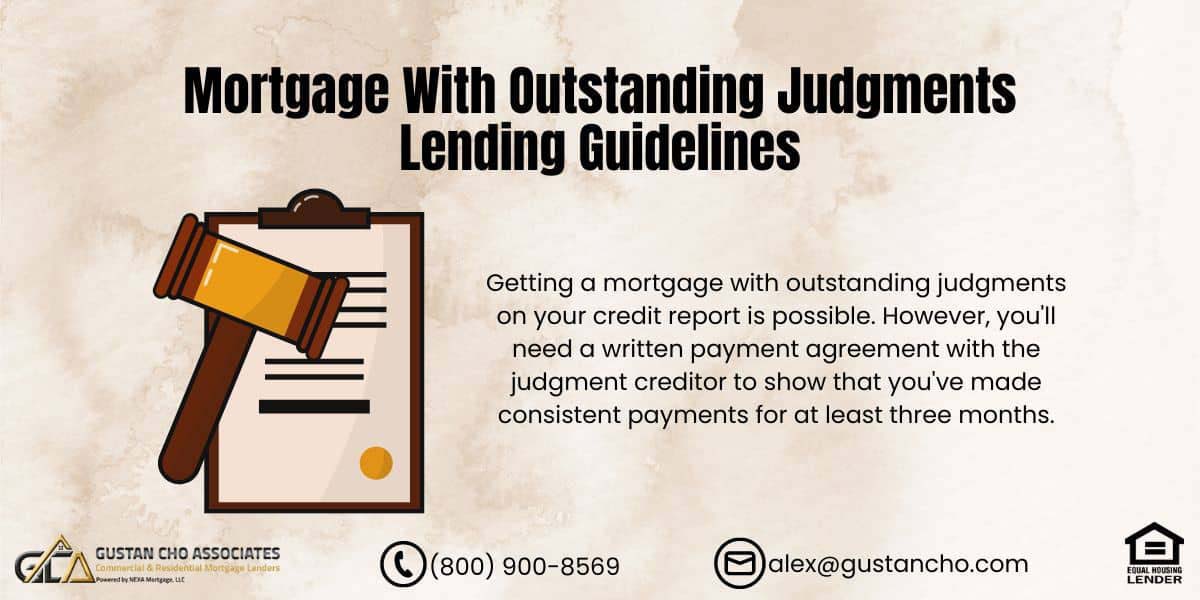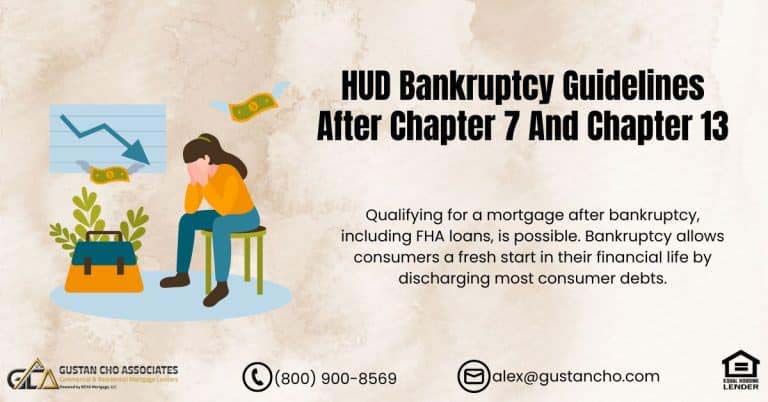Are you trying to buy a house but find out you have unpaid court fees on your credit? It feels like a stop sign, but there’s a way to go ahead. You can actually get a mortgage with outstanding judgments. This guide makes it simple to understand. We will cover the must-haves for your application, what the bank wants to see, tips for making your application look better, how these judgments influence your loan’s terms, key points about your credit, and how to get the best advice. Dive in to learn how you can still land a mortgage with outstanding judgments despite those financial bumps.
Understanding Outstanding Judgments
Understanding judgments is pretty straightforward. Think of judgments as decisions made by the court, such as how much money you need to pay someone because you didn’t pay off your debts. They are big red flags on your credit report, showing that you’ve had significant issues paying back the money you owe.
Most of the time, these judgments can stick around for 10 to 20 years, changing based on where you live, and they can even get a time extension, continuing to affect you.
When it comes to getting a mortgage with outstanding judgments, it’s tricky because lenders see those judgments and worry about your ability to pay back the loan. A mortgage with outstanding judgments requires careful handling, as it directly influences lenders’ decision-making about your financial reliability.
Don’t Let an Outstanding Judgment Stop You!
Apply Online And Get recommendations From Loan Experts
Can You Get a Mortgage With Outstanding Judgments?
You can still secure a mortgage even if some debts are hanging over your head that you must pay off fully. However, there’s a bit of a process involved. When it comes to banks or companies that lend you money for a mortgage, they will need you to have a formal agreement. This agreement should be with the person or establishment you owe money to.
The crucial part of this agreement is that it clearly shows you’ve been consistently paying back the money for at least three months. To prove you’re sticking to this arrangement, you can use copies of checks that have been cashed or statements from your bank account.
Incorporating the concept of a mortgage with outstanding judgments, your ability to get a mortgage certainly remains. It does mean that you’ll need to be organized and have clear records of your repayment plan. Securing a mortgage with outstanding judgments revolves around demonstrating a reliable repayment pattern and having the paperwork to back it up.
Tips on Getting a Mortgage with Outstanding Judgments
When you’re looking into getting a mortgage, whether it’s government-backed or a conventional one, there might be some bumps along the way if you have outstanding judgments against you. However, it’s still possible to move forward if you know the rules of the road. Let’s break it down into simpler terms that are often used.
If you’re considering applying for an FHA Loan, you’re fortunate because the Federal Housing Administration backs it. They allow you to apply for a mortgage with outstanding judgments.
The key here is to have a plan for how you’re paying it off. This means you need a written agreement showing you’re committed to making payments and that you’ve kept your word by paying on time for at least three months.
If you’ve served in the military and are considering a VA Loan from Veterans Affairs, there’s good news for you, too. These loans are more flexible concerning outstanding judgments as well. Like with FHA loans, you need to show that there’s a payment agreement in place to tackle the judgment debt.
Now, things get tighter when it comes to Conventional Loans. These loans follow guidelines set by Fannie Mae and Freddie Mac. To get a mortgage with outstanding judgments through these routes, you’ll need to either have the outstanding judgment resolved entirely or have an established payment agreement where you’ve consistently made payments. They’re stricter, so having a clear plan and a payment history is very important.
In all these scenarios, the emphasis is on showing responsibility towards the outstanding judgment. Whether it’s an FHA, VA, or conventional loan, having a strategy to resolve the judgment and showing a track record of payments can open the door to getting a mortgage with outstanding judgments. Being proactive in this manner can have a significant impact on obtaining your mortgage and progressing toward owning your home.
Lender Policies on Mortgages With Outstanding Judgments
When you get a mortgage and have outstanding judgments, banks will look very carefully at your records, including checking public data, to find any judgments, even if they’re not on your credit history. It’s really important to tell your loan officer about any judgments you have right away.
Different banks might have different rules, but usually, they want a few specific things:
- Written Payment Agreement: If you have a mortgage with outstanding judgments, most banks want to see that you’ve agreed in writing on how to pay back the judgment creditor.
- Payment History: Banks usually like to see that you’ve made your payments on time for at least three months on the judgment.
- Debt-to-Income Ratio: When calculating how much debt you have compared to your income, your monthly payment towards the judgment will be counted.
Steps to Qualify for a Mortgage With Outstanding Judgments
If you need a mortgage but have court judgments against you, follow these simple steps:
- Talk to the People You Owe Money: Reach out to the folks you owe money because of a court judgment and arrange how you’ll pay them back. It’s crucial to write down this plan.
- Pay on Time: Once you’ve agreed on a payment schedule, pay as promised and keep track of all your payments.
- Make Your Credit Better: Boost your credit report by clearing smaller debts, making all payments, and not using too much of your available credit.
- Get Advice from a Mortgage Expert: Find a mortgage broker or officer who can handle cases with outstanding judgments. They can show you the right steps to take and help you find banks willing to work with you despite having a mortgage with outstanding judgments.
Following these steps can increase your chances of getting approved for a mortgage with outstanding judgments.
Impact of Judgments on Mortgage Terms
If unpaid court decisions are piling up, it can change the deal you get on your mortgage. Here’s how it shakes out:
- Interest Rates: Your bank might bump your rate because they consider you a bit riskier.
- Loan Amount: You might get less money because now more debt is hanging over you.
- Down Payment: You could have to put more cash down upfront to balance that risk.
So, if you’re looking into getting a mortgage with outstanding judgments, these are some things you might face.
Need a Mortgage But Have an Outstanding Judgment?
Apply Online And Talk to an Expert & Find a Solution Today!
Credit Score Considerations
Your credit score can take a hit if you have judgments against you, making it harder to get approved for a mortgage. Here’s some everyday advice on how to keep your credit in good shape:
- Keep an Eye on Your Credit: Always check your credit report for any mistakes and fix them.
- Lower Your Debt: Pay off what you owe to boost your credit score.
- Avoid Taking on More Debt: Avoid getting new loans or credit cards while you’re trying to get a mortgage with outstanding judgments.
How Can I Get Rid Of Judgment?
Consumers can settle on judgment with the judgment creditor. The older the judgment is, the more likely the judgment creditor will settle. Before consumers give the settlement amount to the judgment creditor, make sure to get a written agreement that states it is a zero balance.
Consumers can also try to get the judgment vacated by claiming they were not served correctly. This task is often tough but consumers can give it a try.
Expert Legal and Financial Guidance
If you need more clarification about dealing with a court decision on the money you owe, it’s a good idea to talk to a lawyer who knows a lot about sorting out debts or handling bankruptcy. They can give you advice on what steps to take.
Sometimes, declaring bankruptcy might be the best path to clear off judgments and other debts. If you’re thinking about this, speaking with a bankruptcy lawyer can help you determine if it’s the right move for you, especially if you’re dealing with a mortgage with outstanding judgments.
Bankruptcy Will Get Rid Of Most Judgments
Bankruptcy is a debt collector’s worst nightmare. Bankruptcy will wipe out judgments unless the judgment creditor claims a fraud claim. If consumers have multiple judgments, maybe bankruptcy might be the best option.
Need to consult a bankruptcy attorney to see if Chapter 7 Bankruptcy is their best option or whether a settlement is.
Enforcing Judgments By Creditors
The creditor has many options on how to go about enforcing the judgment. However, the judgment debtor needs to have assets for the judgment creditor to be able to enforce the judgment. For example, if the judgment creditor finds out the debtor has assets in his or her bank accounts, the creditor can try to go after the assets in the bank account by getting a court order.
Consumers with outstanding judgments with no assets or means to pay the judgment are considered judgment-proof. Most judgment creditors will not go after people with little to no assets. If the judgment creditor finds out the judgment consumer has assets, they can enforce the judgment and go after the assets. In this article, we will discuss and cover mortgage loans with outstanding judgments on credit reports.
If the judgment creditor has no liquid cash but assets such as cars, jewelry, precious metals, and collectibles, the judgment creditor can try to place the lien on the asset. Borrowers can qualify for a mortgage loan with a judgment on their credit report. If the judgment debtor has no assets, there is nothing a judgment creditor can do to collect. If the judgment debtor has no assets, the debtor is considered judgment-proof, which means uncollectible.
Statute of Limitations on Judgments
The statute of limitations is the period where a judgment creditor has to try to collect and enforce the judgment. Judgment is in a consumer’s credit report for seven years from the judgment issue date. The judgment is deleted from the credit report seven years after the judgment issue date.
Just because the judgment is off one’s credit report does not mean the judgment is invalid. Each state has a different statute of limitations on judgments. Most states have a statute of limitations ten years from the judgment issue date.
However, a judgment creditor can renew the judgment for another ten years if the judgment creditor files the right extension paperwork. Most creditors do not renew old judgments—the judgment creditor’s right to renew an old judgment when it nears the statute of limitations period. The only way to get rid of a judgment is by settling with the judgment creditor or filing for bankruptcy.
Yes! You Can Still Buy a Home Even with an Outstanding Judgment
Apply Online And See If You Qualify
Mortgage With Judgment on Credit Report and Collection Accounts
All collection accounts can turn into potential judgments. If a collection agency gets wind that a person has assets or a good stable income, they may try to pursue suing you and try to get a judgment against them. If borrowers have a collection agency aggressively pursuing them, it may be best for consumers to try to settle with them instead of getting a judgment entered.
Fannie Mae and Freddie Mac, the two mortgage giants in charge of conventional mortgage lending guidelines, have strict lending guidelines regarding judgments. Borrowers cannot qualify for conventional mortgage with outstanding judgments. All judgments against borrowers need to be paid off or borrowers need to enter into a written payment agreement and make 3 months of payments.
The United States Department of Housing and Urban Development, HUD, the parent of the Federal Housing Administration, FHA, will permit home buyers with outstanding judgment on credit to qualify for a mortgage with judgment on credit report. This holds as long as a written payment agreement has been established. Three months of payments have been made to the judgment creditor. Three months of canceled checks need to be provided.
Those having an outstanding judgment on credit reports which do not intend to file bankruptcy should set up a written payment agreement with their judgment creditors. They should start making payments if they want to qualify for mortgages.
Qualifying For Mortgage With Outstanding Judgments
Home Buyers can qualify for a mortgage with outstanding judgments without having to pay it off. However, if one decides to negotiate with the judgment creditor and negotiate the dollar amount owed for clearing the judgment, they need to get a payoff letter of the judgment. The judgment can be paid at the closing of the mortgage.
Home Buyers who need to qualify for a mortgage with outstanding judgments with a national direct lender licensed in multiple states with no mortgage overlays can contact us at Gustan Cho Associates at 800-900-8569 or text us for a faster response. Or email us at gcho@gustancho.com. Gustan Cho Associates have helped countless borrowers with outstanding judgments and tax liens. The team at Gustan Cho Associates is available 7 days a week, evenings, weekends, and holidays.
Securing a mortgage with outstanding judgments is challenging but possible. By understanding the eligibility requirements, following lender policies, improving your credit, and seeking legal and financial advice, you can increase your chances of getting approved. Stay proactive, negotiate with your creditors, and work closely with your mortgage professional to navigate this complex process. With determination and the right strategy, homeownership is within reach despite outstanding judgments.
FAQs: Mortgage With Outstanding Judgments Lending Guidelines
- 1. Can I get a mortgage if I have outstanding judgments on my credit report? Yes, getting a mortgage with outstanding judgments on your credit report is possible. However, you’ll need a written payment agreement with the judgment creditor to show that you’ve made consistent payments for at least three months.
- 2. What is an outstanding judgment? An outstanding judgment is a legal decision specifying the sum of money you must pay to a creditor due to unpaid debts. It shows up as a significant negative mark on your credit record and may impact your capability to obtain a mortgage.
- 3. How long do judgments stay on my credit report? Judgments usually stay on your credit report for seven years from the recording date. However, lenders can still uncover them through public record searches even after they have been removed from your credit report.
- 4. What do I need to qualify for a mortgage with outstanding judgments? To qualify for a mortgage with outstanding judgments, you need a written payment agreement with the judgment creditor, proof of consistent payments for at least three months, such as canceled checks or bank statements, and a clear plan to improve your credit score and manage your debt.
- 5. What types of loans can I apply for with outstanding judgments? With outstanding judgments, you can still apply for FHA, VA, or conventional loans under certain conditions. FHA and VA Loans require a payment agreement and consistent payments, while conventional loans have stricter guidelines, requiring resolution of the judgment or a documented payment agreement and history.
- 6. How do judgments affect my mortgage terms? Outstanding judgments can impact your mortgage terms in several ways. They can lead to higher interest rates, as lenders may charge more to offset the risk. Additionally, your borrowing capacity may be reduced, resulting in lower loan amounts being offered. Furthermore, you might need to make a larger down payment.
- 7. What steps should I take to improve my chances of getting approved for a mortgage with outstanding judgments? To improve your chances of getting approved, negotiate a payment plan with your creditors and document it. Make timely payments, improve your credit score, and consult a mortgage professional experienced in handling judgments.
- 8. What legal and financial advice should I consider? It’s crucial to seek guidance from a lawyer specializing in debt settlement or bankruptcy for legal and financial advice. In certain situations, filing for bankruptcy may be the best option to eliminate judgments and other debts. Consulting a bankruptcy attorney is recommended to determine if this approach suits you.
- 9. How can I get rid of a judgment? One approach is to negotiate a settlement with the judgment creditor to get rid of a judgment. Ensure you get a written agreement stating a zero balance. Alternatively, you can attempt to have the judgment vacated by proving improper service. If these options do not apply, filing for bankruptcy can discharge most judgments unless there’s a fraud claim by the creditor.
- 10. What is the statute of limitations on judgments? The statute of limitations varies by state but generally lasts ten years from the judgment’s recorded date. Judgments can be renewed for another ten years if the creditor files the appropriate paperwork.
- 11. What happens if I can’t pay a judgment? If you can’t pay a judgment and have no assets, you might be considered judgment-proof, meaning creditors can’t collect from you. However, judgments can still affect your ability to secure credit and may resurface if your financial situation improves.
- 12. How do lenders discover judgments that aren’t on my credit report? Lenders conduct national public records searches through third-party services like Lexis Nexis or Data Verify, which can reveal judgments not listed on your credit report.
- 13. Can I still qualify for a mortgage if I negotiate a judgment settlement? Yes, you can qualify for a mortgage while negotiating a judgment settlement. Ensure you have a written agreement with the creditor and can show that you’ve made consistent payments.
- 14. What should I do if a judgment is about to fall off my credit report? If a judgment is about to fall off your credit report, disclose it to your loan officer. Lenders will still find it through public records searches, and being upfront can ensure your mortgage application process is completed on time.
- 15. Can outstanding judgments affect my chances of getting a loan from all lenders? Policies vary by lender, but most will consider mortgage with outstanding judgments a significant risk. Government-backed loans like FHA and VA are generally more flexible, while conventional loans have stricter requirements.
By following these guidelines and seeking the right advice, you can navigate the complexities of securing a mortgage with outstanding judgments and work towards homeownership despite financial challenges.
This blog about “Mortgage With Outstanding Judgments Lending Guidelines” was updated on February 13th, 2025.










